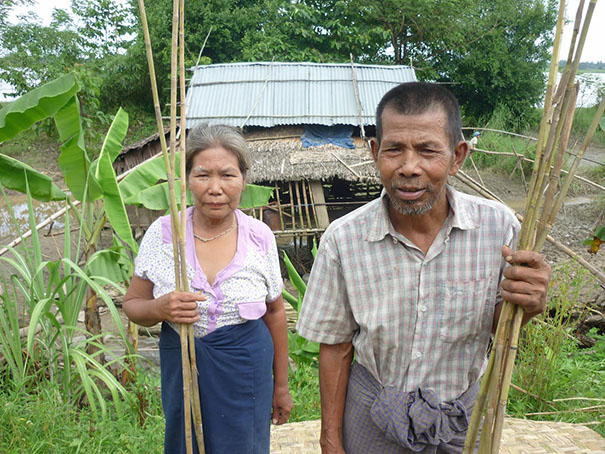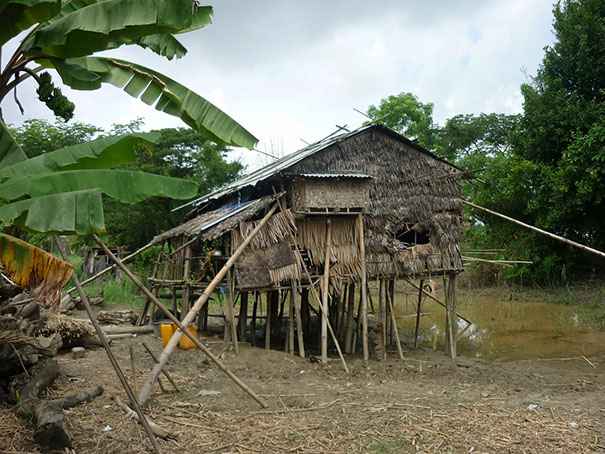U Pauk Sa and Daw Hla are a married couple in their 60s who live in one of an endless number of flood-affected villages in southwest Myanmar. They live with their daughter and three granddaughters. U Pauk Sa cannot work because he is recovering from a stroke. Daw Hla weaves grass mats, which their daughter sells, to earn less than $40 a month for the family. It is barely enough to buy food for the six of them.
After some particularly bad flooding recently, the family was among those who CWS prioritized for basic relief assistance. Even though they received only rice, they said it was very helpful. Because of the flooding, even their modest income was gone; they couldn’t collect the wild grass to weave mats. With the support of CWS, at least the family had their daily rice ration until the flooding subsided and they could get back to their subsistence earning.
Even with a basic rice raction, the family still has to worry about their house, which sits on unstable ground and is at risk of collapse at any time. With barely enough money to buy food, U Pauk Sa, Daw Hla and their daughter can certainly not repair their house.
This is a reality for far too many people.
Many people in this part of Myanmar are daily wage laborers, small scale farmers or fisherman whose incomes barely support their families – especially during annual flooding from July to September.
With this poverty comes malnourishment, if not outright hunger, as well as little or no access to safe water or sanitation (latrines). This, in turn, exacerbates the risk of common, preventable diseases like diarrhea. Further, families borrow money during times of flooding just to survive, and then the high interest that money lenders or shop keepers have charges compounds their poverty.
Poor people become poorer because of this vicious cycle.
Humanitarian assistance during emergencies – even if it’s just a week’s rice ration – is necessary, of course. But it is not enough for someone like U Pauk Sa and his family. This family highlights the nexus of emergency relief and development assistance.
Fortunately, with generous support from our donors, CWS is launching an Integrated Community Development initiative for rural Myanmar this year in an effort to help people like U Pauk Sa and Daw Hla improve their life situation. Our support will include water, sanitation, nutrition, livelihoods and disaster risk reduction activities leading to opportunities for families and communities to develop and strengthen their knowledge and skills for the good of future generations, starting with U Pauk Sa’s and Daw Hla’s granddaughters.


